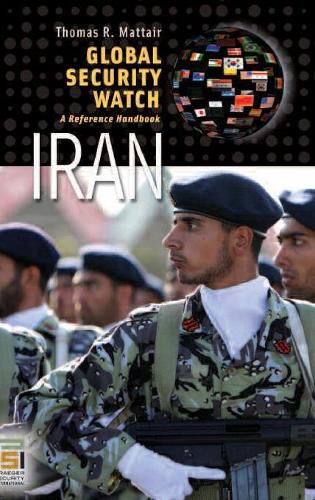
Global Security WatchIran: A Reference Handbook
(Hardback)
Publishing Details
Global Security WatchIran: A Reference Handbook
By (Author) Thomas R. Mattair
Bloomsbury Publishing PLC
Praeger Publishers Inc
30th June 2008
United States
Classifications
General
Non Fiction
International relations
355.033055
Physical Properties
Hardback
224
Description
This book explains the foreign policy decisions of Iranian leaders, as well as the foreign policy decisions of its neighbors and major world powers. Iran is not treated primarily as a problem to be dealt with by the United States and its friends. There is an effort to understand not only the concerns and policies of the United States and its allies, but also to understand Iranian concerns and policy. Thus, this book is better able than many others to explain the actions, reactions, and interactions of all the relevant actors and to explore the prospects for future war or peace. Mattair provides a comprehensive analysis of Iran's relations with its neighbors and major world powers. He begins with a review of Iran's foreign relations from the time of Iran's founding in the 5th century B.C. through the Islamic era beginning in the mid-600's A.D., and the native dynasties that ruled in more recent centuries as Iran faced challenges from foreign powers such as the Ottoman Empire and Western colonial empires. The rule of Shah Mohammed Reza Pahlavi, from 1941 until 1979, is analyzed in detail, covering his efforts to deter aggression by the Soviet Union, forge an alliance with the United States, assert Iran's power in the Persian Gulf, and exercise Iran's economic power, particularly through its oil wealth. The bulk of the book, however, focuses on the foreign relations of the Islamic Republic of Iran since 1979, during the time in which Ayatollah Khomeini and his successors have ruled. The reasons for Iran's early revolutionary activism, its antagonism toward the United States and Israel, and its war with Iraq from 1980 to 1988, are carefully examined. The reasons for international efforts to contain Iran, particularly efforts by the United States, are also analyzed. Iran's more pragmatic policies are explained, as well, including its close relations with Russia and China, its efforts to repair relations with Saudi Arabia and the other Arab states of the Gulf, its cooperation with U.S. efforts to topple the Taliban in Afghanistan after September 11, 2001, and its offer of comprehensive negotiations with the United States in May 2003. Finally, Mattair analyzes the current global debate about whether diplomacy, sanctions, or military action are appropriate responses to Iran's nuclear programs, its role in Iraq and the Persian Gulf, and its resistance to Israel.
Reviews
This volume in the 'Global Security Watch' series makes an excellent attempt to explain the reasoning behind the foreign policy decisions of the Iranian leadership, and those of its neighbors and major world powers that have contributed to the current state of affairsThis work is a must read for policy makers, Middle East scholars and students, and those wishing to have a better understanding of the US's relationship with IranIncludes biographical profiles, a chronology, glossary, and pertinent documentsHighly recommended. Upper-level undergraduates and above in history and political science. * Choice *
Author Bio
Thomas R. Mattair is an independent scholar based in Washington, DC. He has published, lectured, and served as a consultant throughout the United States and the Middle East. He has also served in senior positions at the Emirates Center for Strategic Studies and Research in the United Arab Emirates and at the Middle East Policy Council in Washington. Mattair began his career as Professor at Kent State University, the University of Southern California, and Cornell University.
